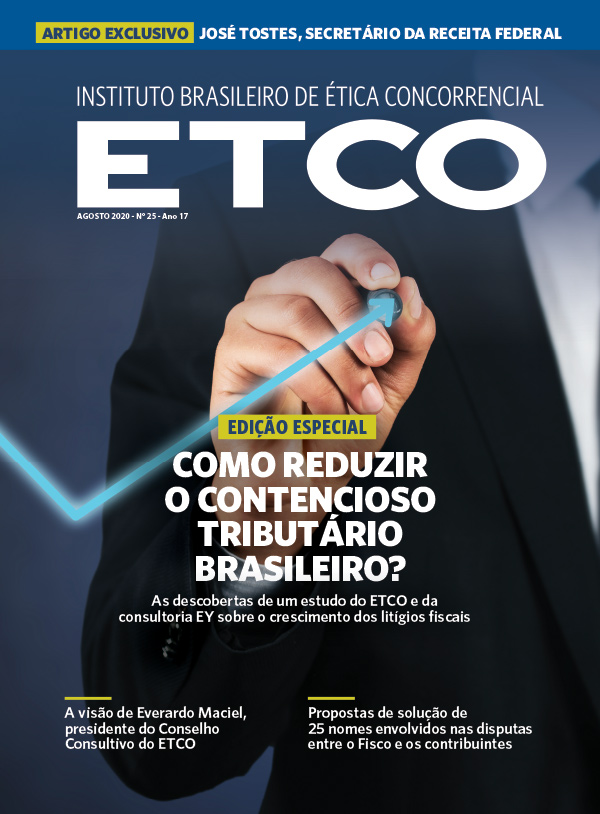“The taxpayer, the Treasury and the Judiciary have to do their part”
 Attorney Juliana Araújo, PGFN coordinator at TRF-3, says what the three involved in the issue should do to reduce litigation
Attorney Juliana Araújo, PGFN coordinator at TRF-3, says what the three involved in the issue should do to reduce litigation
Attorney Juliana Furtado Costa Araújo, who coordinates the defense of the Attorney General's Office for the National Treasury (PGFN) in the TRF-3, considers that both Treasury and taxpayer have responsibility for reducing tax disputes in the country. In this conversation, Juliana, who is also professor at FGV Direito SP, praises innovations introduced by the Civil Procedure Code (CPC) of 2015, points out how her team struggles to reduce the number of cases discussed and proposes a more rigorous treatment to persistent debtors.
Read the main parts of the interview.

A bad environment
The dispute, of course, impacts the implementation of public policies, creates legal uncertainty, because you do not know whether those values will enter the public coffers or not, and whether or not the Union will have to return money to the taxpayer.
And this environment of insecurity is very bad. Both for the Union, for the public sector, and for the taxpayer, who is there and also needs to have regularity in the life of your company. The increase in litigation is serious, and both the taxpayer and the Treasury have to do their part, as does the Judiciary.
Difficulty completing
What strikes me about this addition is the delay in resolving this dispute. Very relevant theses and themes, for the taxpayers and for the Treasury, which took years to be solved. A typical example is the exclusion of ICMS from the PIS / Cofins calculation base, which has its own contentious dispute and a very large reflex. But not only that: discussions about tax liability of administrators who have been without a quick response from the judiciary for years.
We had measures, with the CPC of 2015, in the attempt of solution, but we have very little time to reach a positive response of the implementation of these changes. I am super enthusiastic about the precedent system and I think it came exactly to make the Judiciary more agile, but we still have to imagine that this system enters a context where this precedent did not exist. First, we need to accommodate this new reality, to start seeing the results.
Finance and taxpayer liability
It is necessary that both the taxpayer has tax liability and the Treasury. As chief defense attorney for the PGFN in the 3rd Region, I coordinate the entire defense of the Union in São Paulo and Mato Grosso do Sul. And we were able to see some very high numbers of this litigation.
Not counting tax enforcement, all other issues involving tax litigation in São Paulo and Mato Grosso do Sul totaled 200 subpoenas last year. It is a lot, and the Union needs to do something to show that it is ready to reduce this dispute. We have a very high rate of litigation reduction here, and, not counting the first degree, we stopped filing an appeal in about 13 cases. It is a very significant number.
And we have also taken steps to end tax enforcement proceedings. In 2019 alone, we extinguished around 35 thousand Active Debt Certificates (CDA) in the capital of São Paulo. This responsibility of the Union is because it is concerned with reducing litigation, but also with a concern to implement measures that bring the taxpayer close to the Treasury.
Reducing litigation is in everyone's interest
The Union wins by reducing litigation, increasing negotiation and negotiating guarantees. And the taxpayer gains a lot: in addition to reducing litigation, he will have greater predictability in payments of what he owes and will reduce costs; you will have greater control over your savings and assets. When the Treasury opens to reduce litigation or to talk to the taxpayer, it shows that it is willing to reduce this dispute, and nothing better than numbers to show that this reduction is real.
The taxpayer also has a huge responsibility in reducing litigation. There are many disputes with the procrastinatory objective. But I am not saying that all taxpayers litigate for that purpose. In fact, for me, the taxpayer 's responsibility lies in knowing how to choose what is worth litigating. Everyone must take responsibility for the ultimate goal of reducing this gigantic dispute, which does not interest anyone.
Rules for allowing dialogue
The dialogue aimed at tax compliance is the big change that is already in the implementation phase and needs to be matured more and more. But a dialogue with the taxpayer cannot be maintained if there are no normative instruments that support this dialogue to end.
When I speak of “opening the dialogue”, it is because I am based on normative provision there in the Code of Civil Procedure; when I talk about being able to talk to the taxpayer and negotiate, for example, via a transaction, such as MP 899/2019 [converted into law nº 13.988 / 2020], I need this normative foundation.
It is not enough just to establish, through initiatives by the Treasury itself, such measures to reduce litigation. We have instruments of our own that allow us not to file appeals, but they are based on law. [Law No. 13.988 / 2020] is one of the most innovative measures. We have been waiting for this regulation for years.
Stubborn debtor
It is very important to be able, within the litigation, to classify the taxpayer. What we call a “good taxpayer” must have benefits and feel that the tax administration recognizes this characteristic of him. On the other hand, that taxpayer who clearly engages in structured tax fraud and in situations where it is clear that the tax is not intended to be negotiated, that he does not want to pay, but rather to procrastinate, needs to have due attention from the Public Treasury.





 President of Insper and ex-secretary of Economic Policy, Marcos Lisboa says that following internationally established practices would be the simplest path for Brazil
President of Insper and ex-secretary of Economic Policy, Marcos Lisboa says that following internationally established practices would be the simplest path for Brazil Getap's executive director, Zabetta Macarini Gorissen, says that Brazil has grown accustomed to resorting to litigation instead of acting directly at the source: improving tax legislation
Getap's executive director, Zabetta Macarini Gorissen, says that Brazil has grown accustomed to resorting to litigation instead of acting directly at the source: improving tax legislation Economist Lorreine Messias, author of studies on the subject, says that structural reform is necessary - and recalls that other countries can set good examples of how to do this
Economist Lorreine Messias, author of studies on the subject, says that structural reform is necessary - and recalls that other countries can set good examples of how to do this The president of Unafisco, Mauro Silva, points out the need to expand professional improvement initiatives for the staff of tax auditors of the Federal Revenue
The president of Unafisco, Mauro Silva, points out the need to expand professional improvement initiatives for the staff of tax auditors of the Federal Revenue PGFN Attorney Leonardo Alvim defends tax reform and specific measures to increase legal certainty in the tax field
PGFN Attorney Leonardo Alvim defends tax reform and specific measures to increase legal certainty in the tax field Adriana Gomes de Paula Rocha, Deputy Attorney General of Consultancy and Strategy of the Judicial Representation, talks about the reasons for the congestion of tax processes in the Judiciary
Adriana Gomes de Paula Rocha, Deputy Attorney General of Consultancy and Strategy of the Judicial Representation, talks about the reasons for the congestion of tax processes in the Judiciary The ways to reduce litigation, in the view of the Deputy Attorney General for Consulting and Administrative-Tax Litigation, Phelippe Toledo Pires de Oliveira
The ways to reduce litigation, in the view of the Deputy Attorney General for Consulting and Administrative-Tax Litigation, Phelippe Toledo Pires de Oliveira
